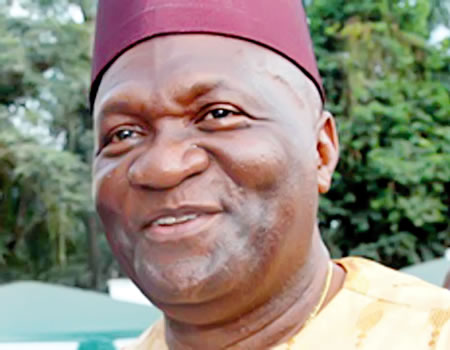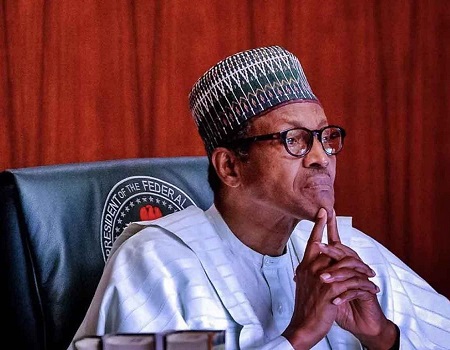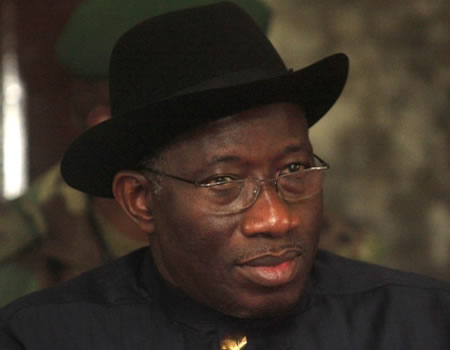Southeast Bureau Chief, JUDE OSSAI, looks at the issues on the call for a president of Igbo extraction for the country in 2023, in this piece.
ALTHOUGH the 2023 general election is still afar, there is already a hot debate, particularly among the political elite, as to which of the ethnic groups in Nigeria will lead the country after President Muhammadu Buhari has served out his second tenure.
One of the major ethnic groups in serious contention for the Presidency is the South-East geopolitical zone occupied by Nd’Igbo.
Indeed, there is bottled up anger in an average Igbo man over the perceived marginalisation of the people of the region. Many of the people in the zone are not comfortable with the country’s leadership deficit and lack of vision, hence they are hungry to take up the mantle of leadership of the country so as to bring to bear their history of competence to governance.
It is the alleged injustice and oppression that made many Igbo youths, especially the unemployed, to support the agitation for an independent state of Biafra championed by the Indigenous People of Biafra (IPOB), led by Mazi Nnamdi Kanu.
Fulani and origin of the names “Yoruba” and “Yamiri”
Some of the separatists interviewed, but who preferred to remain anonymous, opined that only restructuring, making federating units to develop themselves would douse the heightening tension and restiveness in the country.

“Since the country’s return to a civilian rule in 1999, Nigeria has produced four presidents, including the incumbent president, (Muhammadu Buhari). The first president, Olusegun Obasanjo (1999-2007), is from South-West region (Ogun State), while the second, Umaru Musa Yar’Adua (2007-2010), is from the North-West (Kastina).
The third, Goodluck Ebele Jonathan (2011-2015), is from the South-South (Bayelsa). And lastly, the incumbent president is also from North-West region (Kastina). Where is the position of the Igbo man?” Dr Ugochukwu
Idoko asked.
Dr Idoko, a Senior Lecturer at the University of Nigeria, Nsukka (UNN), told Sunday Tribune that prior to the 2015 presidential election, Nd’Igbo were advised that supporting Buhari for a second term would get Igbo presidency in 2023, adding that the people of the zone improved on the figure they gave to President Buhari in the previous poll.
“My worry is that in his ‘Next Level’ engagement in the South-West, before the last general elections, Vice President Yemi Osinbajo told his people that backing Buhari’s second term ambition would help the region to retain its position as the number two citizen of the country and as well get the region (South-West) to clinch presidency in 2023. Today, Professor Osinbajo has retained his position, while the region is plotting to take over from Buhari in 2023,” he added.

Some of the political watchers in Enugu agreed that there is defeatism of the war concept which positions the Igbo man as a second fiddle creating a wide social gulf to be filled.
For the founding father of the All Progressives Grand Alliance (APGA) and the United Progressives Party (UPP), Chief Chekwas Okorie, the reasons the Igbo have failed to clinch the presidential seat of the country since the First Republic can be assessed from three dimensions. One of them, he said, is that the colonial masters that handed over parliamentary system of government to Nigeria at independence, deliberately created more parliamentary constituencies in the Northern region than the Southern regions of Western, Eastern and Mid-Western Nigeria put together.
Chief Okorie explained that “these regions were dominated by three foremost political parties namely the Northern Peoples Congress (NPC), for the North; Action Group (AG), for the West and the National Council of Nigerian Citizens (NCNC), for the East.
“The parliamentary system allowed the party that has won the majority of parliamentary seat to form the central government. The NPC, which dominated the Northern region, took advantage of that arrangement to form the First Republic government, with Alhaji Tafawa Balewa as Prime Minister.
“Secondly, the presidential system, largely copied from the United States of American (USA) was introduced by the outgoing military government in 1979. This was barely nine years after a fratricidal civil war that left the Igbo more concerned with picking the pieces of their lives. They were largely apathetic to the politics of the Second Republic, notwithstanding the involvement of political leaders like Dr Azikiwe and others.
To Mazi Kindness Jonah, the convener of Voice from the East (V-EAST), “there is attendant morbidity or phobic of anything Igbo in Nigeria, which translates to lack of political trust to hold certain offices and finally unseen written or unwritten agreement immediately after the civil war in 1970 that no Igbo will occupy presidency of Nigeria.”
Jonah added that “the rank and file of Nigerians still doubt the moral qualification of an Igbo man to be the president of Nigerian and this has nothing to do with pedigree defined on acquirement of degree and valance of experiences.
“What posits Igbo man as naïve politically are the three issues raised above, because of the feeling of moral insufficiency. It does not mean that Igbo man is naïve, but the background he is operating from makes him to be playing a second fiddle role which inadvertently is naivety.
“So, for the Igbo man to be president, he must shed the feeling that he is morally not qualified.”
The Igbo activist maintained that neither Igbo presidency nor the clamour for righting the wrongs against Nd’Igbo unilaterally is the way forward for the Igbo in the contemporary society, submitting that redemption for the Igbo lies in restructuring of the country, a development he said is the albatross of Nigeria’s lack of development. According to himrestructuring has… holistic benefit to every Nigerian [it is], a generic approach to solving Nigeria’s problem and obliterating ethnicism, tribalism, religiousity and all forms of inclinationalism in the Nigerian body politic.”
Another Igbo leader who is also pained for the continual denial of the Igbo presidency, is the President-General of Ohanaeze Nd’Igbo, Chief John Nnia Nwodo.
Also going down the memory lane, the Executive Director of Civil Liberties Organization (CLO), Ibuchukwu Ezike, observed that Nd’Igbo’s failure to clinch the office of the prime minister in the First Republic under the parliamentary system was a result of the people’s faith in Nigeria and brotherhood.
According to Ezike, “Dr. Azikiwe had said that by October 1st, 1960, Nigeria would become free or independent, and that it didn’t matter who became the prime minister, whether Chief Obafemi Awolowo, Alhaji Balewa or himself. What would be important would be that Nigeria had become independent. This expression totally speaks volumes of the free minds, sense of brotherhood and faith of Nd’Igbo in the Nigerian project.
“And throughout the whole world, the great Zik was the only leader of the independence revolution who didn’t assume leadership after the struggle was won. [It was] not for a mark of cowardice.”
He said the Great Zik of Africa, as he was fondly called by his admirers, even allowed a junior partner to lead, adding that the same scenario presented itself in 1956 when Chief Anthony Enahoro moved the independence motion, demanding that Nigeria’s independence be achieved in 1957.
“Zik, again, delayed the attainment of independence till 1960, when the North, which said it wasn’t ready for freedom became ready and the entire stakeholders jointly founded Nigeria. This broad-mindedness of Zik demonstrates the selfless and accommodating nature of Nd’Igbo, and not a mark of weakness,” Ezike said.
The human rights activist further highlighted that “even when the late Major General Aguiyi Ironsi took over as the Head of State and Commander-in-Chief of the Armed Forces, he enacted the same national spirit for unity, peace and progress of Nigeria.

“In the post-civil-war politics, it is evidently clear why it has not been possible for Nd‘Igbo to produce the president of the Federal Republic. The Igbo lost out in the civil war and have since then been treated as an unequal partner in the Nigerian project. No other reason is responsible for this, except this, but there are gradual attempts, efforts or moves to appeal to Nigerians by the Igbo to reverse the ugly trend because achieving the Presidency of Nigeria is not a project of one ethnic nationality or group. You need the solidarity of all or majority of Nigerians or sections of Nigeria to attain it.
“So, for Nd’Igbo to achieve the presidency of Nigeria, they must mobilise other Nigerians to support them. They must campaign. They must work to convince their brothers and sisters from the other ethnic nations. And they must do it in a humble but consistent manner.”
Already, a pressure group called ‘South-East for President 2023 Movement’ had, in April, met in Enugu with the sole purpose to occupy Aso Rock after President Buhari.
According to the national chairman of the group, Reverend Okechukwu Obiora, the idea of forming the forum was to bring Igbo intelligentsia, religious, business and political leaders together with a view to ensuring that the zone does not work at cross-roads ahead of 2023 general elections.
“The movement will bring every Igbo person at home and in the Diaspora together to understand that the mission of the zone going forward is the presidency in 2023 and that speaking with one voice, we can reach other ethnic nationalities, because no one zone can produce the president of Nigeria,” he explained.








